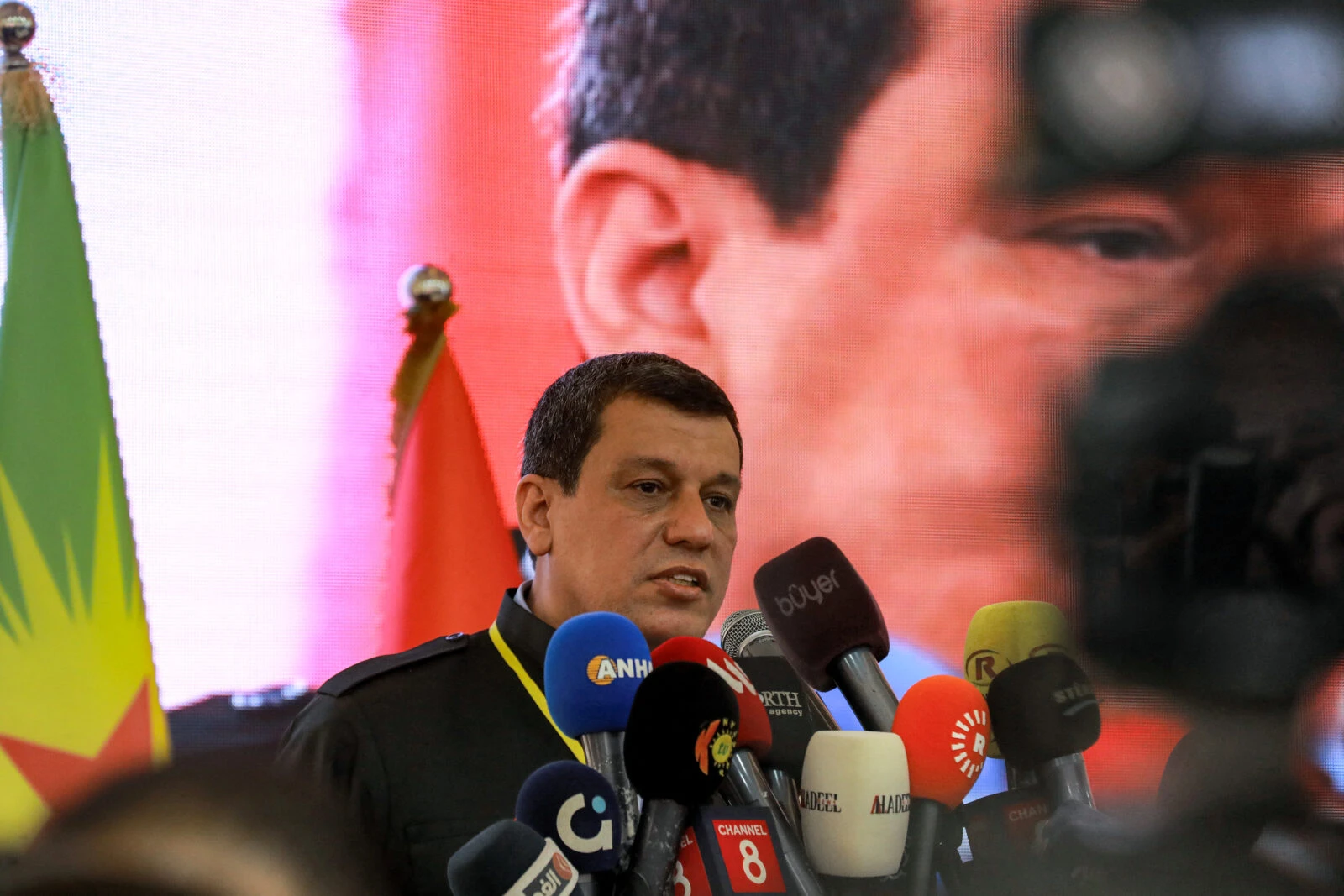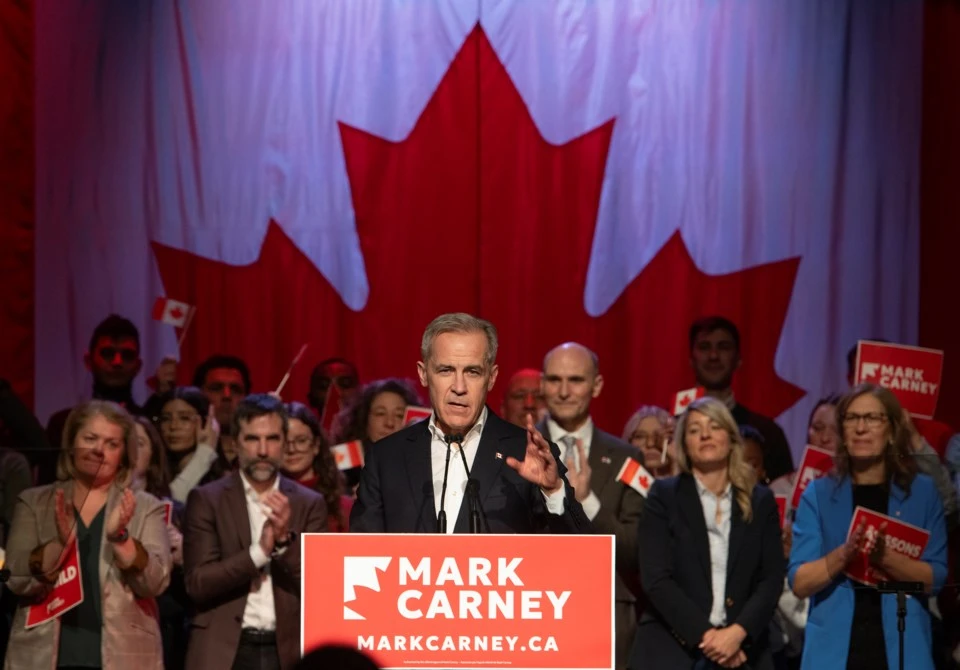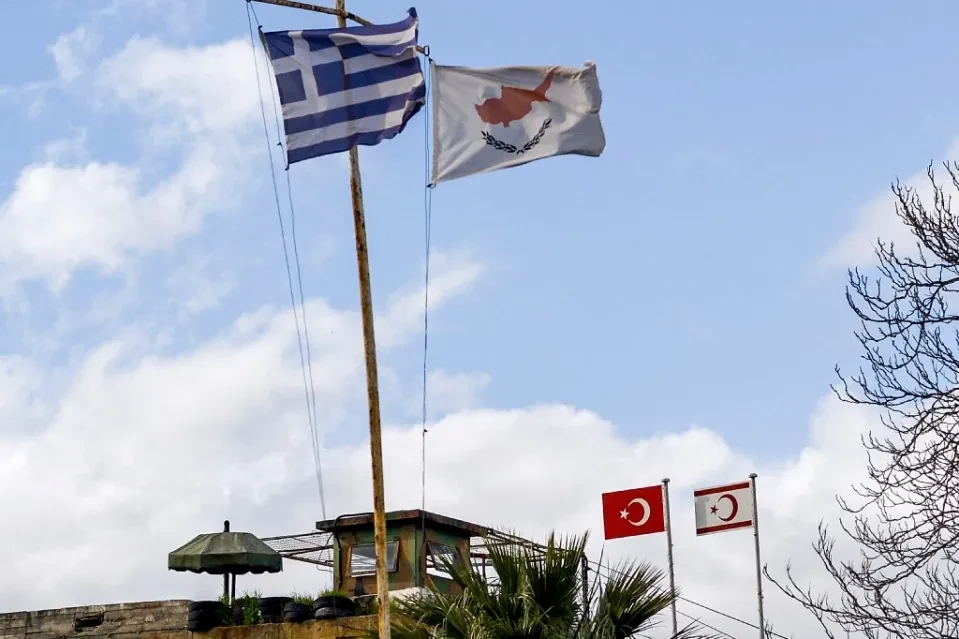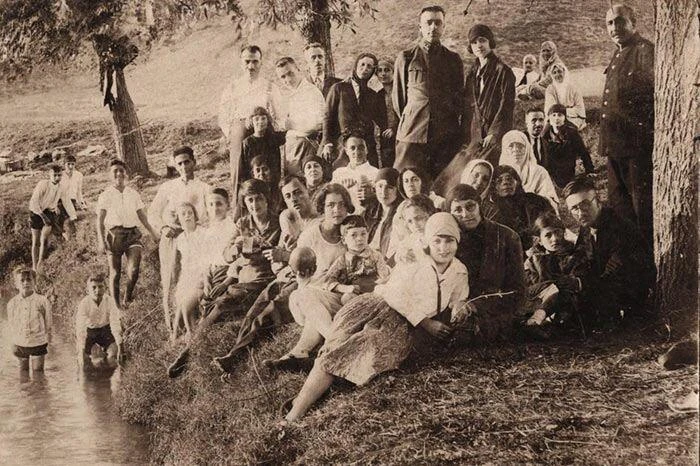Syria strongly reacts to YPG’s separatist requests undermining country’s unity
 Syrian President Ahmed al-Sharaa signs a declaration outlining the main provisions of the interim constitution in a ceremony held at the People's Palace in the capital Damascus, Syria on March 13, 2025. (AA Photo)
Syrian President Ahmed al-Sharaa signs a declaration outlining the main provisions of the interim constitution in a ceremony held at the People's Palace in the capital Damascus, Syria on March 13, 2025. (AA Photo)
The Syrian Presidency issued a statement on Sunday firmly rejecting the terrorist group PKK/YPG’s demands for federalism and autonomy, emphasizing the importance of national unity and warning against attempts to divide the country without a broad national consensus.
Syrian Presidency condemns federalism initiatives
“We clearly reject any attempt to impose a separatist reality or to create separate entities under the cover of federalism… without a national consensus,” the Syrian Presidency said in an official statement.
The statement also condemned “the recent activities and declarations” by the terrorist group SDF that “call for federalism.”
The presidency asserted that “the unity of Syria, of its territories and its people, is a red line,” underscoring its stance against any division or formation of separatist cantons.

YPG’s conference in Qamishli, Syria
The announcement came a day after the PKK/YPG-led conference, joined by American officials, was held in the northeastern city of Qamishli.
Following the meeting, a joint statement declared that “a common political vision was formed, offering a fair solution to the Kurdish issue within a decentralized democratic state framework.”
Ferhat Abdi Sahin, also known as Mazloum Abdi, a senior figure in the terrorist organization SDF and a known ringleader within the YPG, addressed the conference, stating, “My message to all Syrian constituents and the Damascus government is that the conference does not aim, as some say, at division.”
He added, “We support all Syrian components receiving their rights in the constitution to be able to build a decentralized democratic Syria that embraces everyone.”
Syrian authorities remained firm in opposing any decentralization without full national agreement.

Syria’s resources, future challenges
Since the early stages of the civil war in 2011, the SDF has exercised de facto autonomy by occupying parts of northern Syria and controlling key oil and gas fields.
These resources are expected to play a critical role in the efforts of the new Syrian government, which replaced Bashar al-Assad in December, to rebuild the war-torn country.
In March, Syrian President Ahmed al-Sharaa and Ferhat Abdi Sahin signed an agreement to integrate SDF institutions into the Syrian state framework, though significant challenges remain because of the terrorist group PKK/YPG’s failure to fulfill the terms of the agreement and rejection of any withdrawal from the areas that they occupy.



